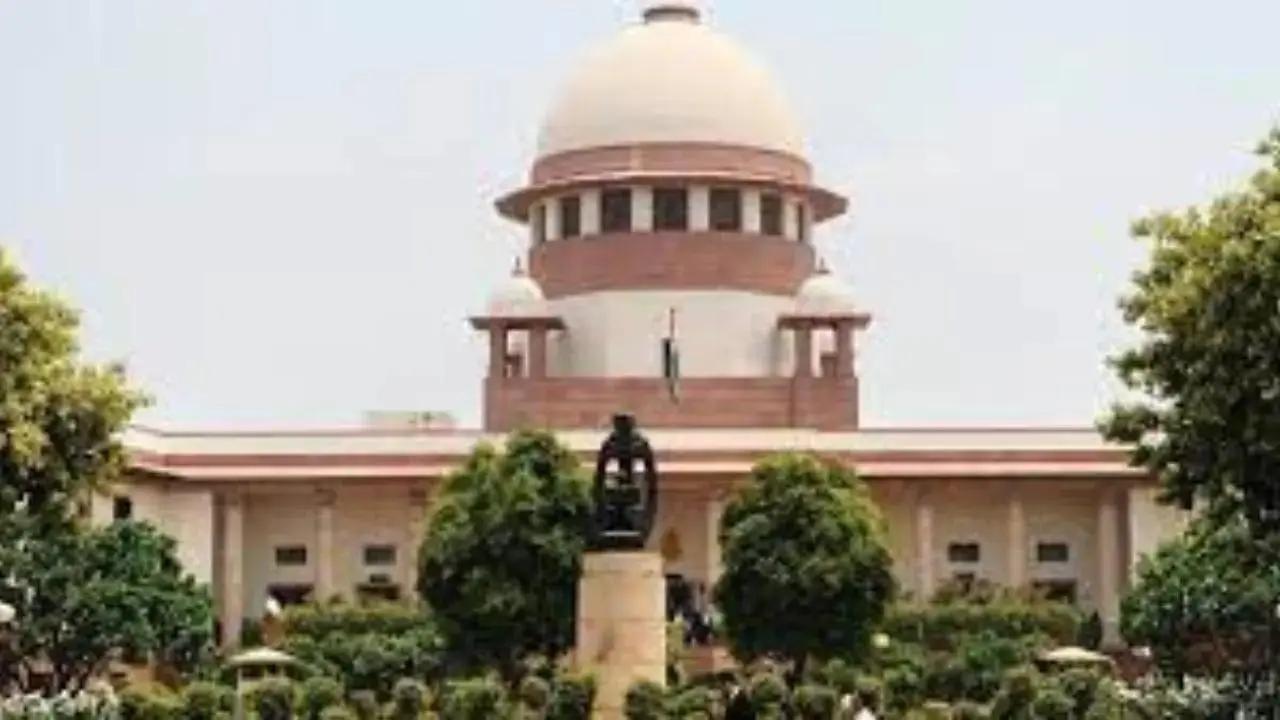It added that citizens belonging to different religions and denominations following different property and matrimonial laws are an affront on a nation's unity, and to have legislation or not is a policy decision and the court cannot give any direction to the executive

Supreme Court
The Law Ministry has told the Supreme Court that the court cannot direct Parliament to frame or enact any law, as it sought dismissal of PILs seeking a Uniform Civil Code (UCC) in the country.
ADVERTISEMENT
It added that citizens belonging to different religions and denominations following different property and matrimonial laws are an affront on a nation's unity, and to have legislation or not is a policy decision and the court cannot give any direction to the executive.
In a written response, the ministry said: "It is submitted that the present writ petition is not maintainable in the eye of law since the petitioner, inter alia, seeking direction against the Union of India to remove the anomalies in the ground of divorce and make Uniform Civil Code."
The response further added, "It is a settled position of law as has been held in a catena of judgments by this court that under our constitutional scheme, Parliament exercises sovereign power to enact laws and no outside power or authority can issue a direction to enact a particular piece of legislation. A writ of Mandamus cannot be issued to the legislature to enact a particular legislation."
The ministry's response came on a PIL by advocate Ashwini Upadhyay seeking uniformity in the personal laws regulating marriage divorce, maintenance and alimony.
Also read: MNS chief Raj Thackeray urges PM Modi to bring Uniform Civil Code, population control law
The ministry said, "This is a matter of policy for the elected representatives of the people to decide and no direction in this regard can be issued by the court. It is for the legislature to enact or not to enact a piece of legislation."
It added that the Article 44 of the Constitution is a directive principle requiring the state to endeavour to secure UCC for all the citizens, and the purpose behind Article 44 is to strengthen the object of "secular democratic republic" as enshrined in the Preamble of the Constitution.
It submitted that the provision is provided to effect integration of India by bringing communities on the common platform on matters which are at present governed by diverse personal laws. Therefore, against the backdrop of the sensitivity of the subject matter, in-depth study of provisions of various personal laws governing different communities is required, added the ministry.
In reference to Article 44, the ministry said: "This article is based on the concept that matters of inheritance, right to property, marriage, divorce, custody of minor children, maintenance, and succession, etc.: there will be common law. Article 44 divests religion from social relations and personal law. Citizens belonging to different religions and denominations follow different property and matrimonial laws which are an affront to the nation's unity."
It assured the court that it is conscious of the matter and that the 21st Law Commission conducted a detailed examination by inviting representations from several stakeholders.
However, in August 2018 the commission's term ended and the matter was scheduled to be placed before the 22nd Law Commission. "As and when the Report of the Law Commission in the matter is received, the government would examine the same in consultation with the various stakeholders involved in the matter," said the ministry.
Upadhyay's, in one of the directions in his plea, sought steps to remove anomalies grounds of divorce and make them uniform all for citizens without prejudice on the basis of religion, race, sex or place of birth in spirit of Articles 14, 15, 21, 44, and international conventions.
This story has been sourced from a third party syndicated feed, agencies. Mid-day accepts no responsibility or liability for its dependability, trustworthiness, reliability and data of the text. Mid-day management/mid-day.com reserves the sole right to alter, delete or remove (without notice) the content in its absolute discretion for any reason whatsoever.
 Subscribe today by clicking the link and stay updated with the latest news!" Click here!
Subscribe today by clicking the link and stay updated with the latest news!" Click here!







